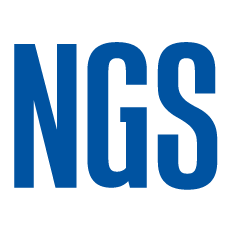
Loathe pursuing those 3 quotes for a single item purchase? You are not alone. There is good news though: federal, state, and local government entities can now streamline the procurement process through contracting vehicles and Edgar-compliant purchase co-operatives.
These vehicles help government buyers expedite the procurement of products and services by not having to go out to bid or find pre-approved contractors who have proven themselves reputable. Instead, by using the government contractor vehicles or available co-ops, you can save money with pre-negotiated or competitively bid prices.
Key benefits include:
- Streamlined requisition
- Guaranteed competitive pricing
- Pre-approved solutions
- Less administrative costs
- Save time and money
- Peace of mind
Government Contracting Vehicles cut the red tape in half when it comes to facilitating certain projects or purchases for the government. Ultimately, it can ensure that our tax dollars are being responsibly spent. And that is certainly a step in the right direction.
What is a government contracting vehicle?
“A contract vehicle is a streamlined method the government uses to buy goods and services. Contract vehicles are centrally managed by a federal agency, which reduces acquisition administrative costs and creates time and resource efficiencies.” Sounds productive, right?
Typically, the government requires three different quotes for any single purchase or job contract. This becomes a colossal waste of time when you need a stapler, yesterday, and have the common sense to pay less than ten dollars, instead of fifty. However, this requirement was the government’s initial effort to prevent corporations from gouging government entities, thus abusing taxpayer funding. It proved necessary after decades of fiscal abuse.
Consequently, the Federal Government decided that by creating a streamlined system with requirements for business owners to meet, they could support small business owners, as well as minority entrepreneurs, and control the monopoly often maintained by larger corporations. Approved services range from information technology procurement to emergency services, as well as providing general office supplies.
More specifically it includes contracts, both large and small, for ventures paid for by the government. Whether that be for large government contracts executed overseas or small contracts here at home. This can give small business owners greater opportunities they otherwise may never have. Another positive aspect of government contractor vehicles is preferences may be given to veteran-owned businesses, women-owned businesses, or disadvantaged businesses.
What Does Edgar-Compliant Mean and Why is it Important?
EDGAR is the Electronic Data Gathering, Analysis, and Retrieval system. This system contains both individual and company documents submitted under the Securities Act of 1933, the Securities Exchange Act of 1934, the Trust Indenture Act of 1939, and the Investment Company Act of 1940. “Its primary purpose is to increase the efficiency and fairness of the securities market for the benefit of investors, corporations, and the economy by accelerating the receipt, acceptance, dissemination, and analysis of time-sensitive corporate information filed with the agency.”
Access to EDGAR’s public database is free and available to the public. You may use this database to research a public company’s financial information and operations by accessing the filings the company makes with the SEC (Security Exchange Commission). Additional information provided by mutual funds, exchange-traded funds (ETFs), variable annuities, and individuals is also available on the database.
To be Edgar-Compliant means that all vendors agree to provide the necessary documents, with regularity according to their state and federal requirements. By maintaining public records of financial disclosures EDGAR facilitates a space of transparency and equity within the professional arena. This affords buyers a more level playing field.
What are the main Contracting Vehicles and Purchasing Cooperatives?
While there are numerous contracting vehicles and purchasing co-operatives, some of the major ones include the General Services Administration (GSA), TIPS-USA, Purchase Cooperative of America (PCA), and California Multiple Award Schedules (CMAS). We will give a brief review of each below.
General Services Administration
The General Services Administration is an independent agency of the United States government that was established in 1949 to help manage and support federal agencies. It is considered to the first government contractor vehicle that aids with facilitating purchases and contracts.
You can access their contractor library, as well as obtain an electronic quote through their Request For Quotation (RFQ) system and be assured that you are dealing with a “best value” and reputable organization. Both federal agencies and taxpayers can utilize this public resource to incur the best possible outcome for purchases and projects.
GSA also has a Green Procurement Compilation (GPC) format for federal buyers. This program identifies federal green purchasing requirements, as well as resources for sustainable acquisition. In addition, they (GSA) also have/host the Federal Procurement Data System—Next Generation that provides federal buyers with details for specific contract award data and news. This provides transparency regarding monetary and timeline expectations for contract work.
CMAS
California Multiple Award Schedules (CMAS) offers a wide variety of commodity and information technology products, as well as services, at prices which have been assessed to be fair, reasonable, and competitive. The CMAS Program creates a pool of suppliers that an agency can solicit offers from. This includes everything from food to IT products. However, it is available to government entities only.
CMAS may be best known for its CAL-CARD. Issued by Bank of America, the CAL-Card allows state and publicly funded local agencies to make purchases readily. Implementation of a CAL-Card Program in an agency can take 4 to 6 weeks for a small agency or 8 to 12 weeks for a large agency. From submission of the application to receipt of cards can take 7 to 9 weeks for small agencies and 11 to 15 for large agencies.
If you are a government entity and would like to access the vendor listing, you may do so here.
Purchase Cooperative of America (PCA)
In a similar role, the Purchase Cooperative of America also has an approved vendor listing. The PCA mission is to provide innovative “best value” contracts that employ the highest ethical standards available. Additionally, this vendor listing is intended to provide real time and money savings for all PCA Members and Awarded Contractors. Furthermore, memberships are free.
PCA memberships include, but are not limited to, public sector entities such as educational institutions (both public and private), Indian Tribal Governments, hospitals, non-profit organizations, houses of worship, and law enforcement. All of these organizations experience a more efficient and fair process in purchasing, as well as procuring contracts for projects or jobs. Their services include vendors specializing in natural disaster follow-up care.
There is no membership fee to join PCA. PCA operations are supported through an administrative fee paid by awarded contractors. Moreover, the administrative fee does not impact the cost the member will pay for service as it is a component of the awarded contractor’s overhead cost.
If you would like to sign up as a buyer, you may do so here.
TIPS-USA
The Interlocal Purchasing System (TIPS) is located in and managed by the Region 8 Education Service Center in Pittsburg, Texas. TIPS is a national purchasing cooperative that offers access to competitively procured purchasing contracts for members only. The good news is a TIPS membership is also free. However, it is offered to governmental agencies only. Public education organizations, higher education entities, and city or county governments, are all welcome.
In addition to providing vendors and contractors that have been vetted, a TIPS membership also includes access to pricing based on a “national” high-profile contract system, savings of time and financial resources, as well as staff assistance with the purchasing process.
TIPS also requires that contractors are EDGAR-compliant. If you would like to access the website’s vendor listing process, you may do so here.
Work with an Approved Government Contractor with NGS
As we move into a technological age, we still experience what we consider “red tape”. But the good news is, we at least try to be more efficient in working within the system. And we have computers, as well as government contractor vehicles to help relieve a lot of the leg work.
Having the government do the due diligence of researching companies and setting standards for quality service and pricing means we can all rest easier doing business. Any time that you need to procure a purchase or contract, consider using these resources. That is what they have been implemented for and they can make your processes a lot easier.
Likewise, if you are interested in window film or architectural finishes, NGS is the only company vetted and approved by GSA and PCA, CMAS, and TIPS. Our contract numbers are listed below:
- GSA Schedule 84 Contract holder 47QSWA20D00C
- TIPS-USA Contract: safety supplies and services 220101
- TIPS-USA Contract: job order contracting 211001
- PCA- Purchase Cooperative of America Glazing Contract PCA-OD-316-20
- CMAS Contract California 4-20-84-0085
We average 6,000 installments a year. Our organization has the expertise to implement the right window film system, at the best value, for your building(s).
Government contracting vehicle confidence
Essentially, government contracting vehicles are intended to benefit all parties involved. They definitely increase the confidence of the buyer. We, at NGS, would be honored to facilitate making your government building better in the near future. Reach out today to leverage the advantages of our contractor vehicles.
Photo by Katie Moum on Unsplash


